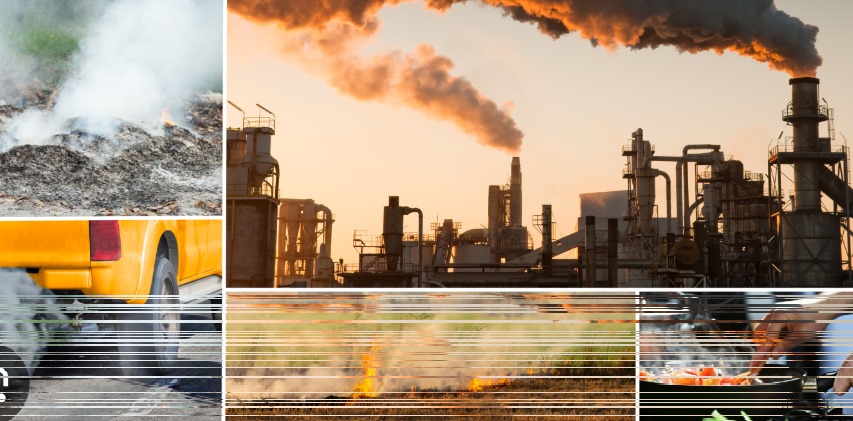Environmental Pollution and Its Consequences
Environmental pollution is the introduction of harmful substances into the natural environment, causing adverse effects on air, water, and soil quality. It is one of the biggest challenges facing the world today, affecting the health of humans, animals, and plants. Pollution mainly results from human activities such as industrialization, vehicle emissions, deforestation, and improper waste disposal.
Air pollution occurs when harmful gases, smoke, and dust particles are released into the atmosphere. This leads to respiratory problems, allergies, and even serious diseases like asthma and lung cancer. Water pollution happens when chemicals, plastics, and untreated sewage contaminate rivers, lakes, and oceans. This not only harms aquatic life but also makes water unsafe for drinking and farming. Soil pollution, caused by the use of pesticides, industrial waste, and dumping of non-biodegradable materials, reduces soil fertility and affects crop production.
The consequences of environmental pollution are far-reaching. It contributes to climate change by increasing greenhouse gases, which cause global warming. Pollution also disrupts ecosystems, leading to loss of biodiversity. Humans suffer from various health problems, and the economy faces high costs due to healthcare and environmental cleanup.
To tackle pollution, it is important to promote sustainable practices such as reducing emissions, recycling waste, using clean energy, and protecting natural habitats. Governments, industries, and individuals all have a role to play in preserving the environment for future generations. Raising awareness and adopting eco-friendly habits can help create a cleaner, healthier planet for everyone.




